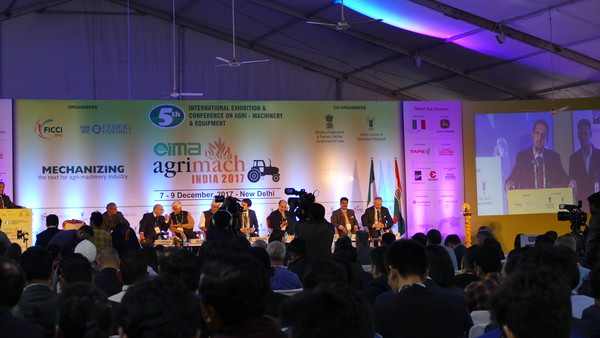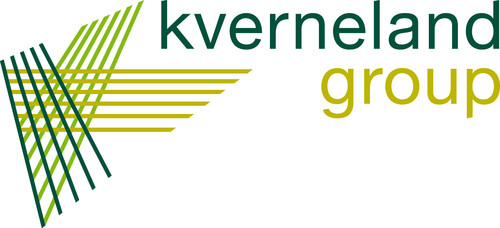
A technological future for Indian agriculture
EIMA Agrimach was marked by a very positive outcome in terms of participation, conferences and business meetings, and was characterized by the topic of innovation, with work sessions dedicated to the description of the most advanced technologies which may be applied in the regions of the Indian subcontinent. Among the events held also the award for the competition for most interesting technological solutions developed by students of universities and agricultural schools
The machinery displayed at EIMA Agrimach is selected on the basis of the needs of Indian and Asian agriculture: tractors, combine harvesters, shredders, rice transplanters, motocultivators, but also sprayers, tillage machinery, and a wide range of components, from hydraulic cylinders to three-point hitches to coulters and hoes, are exhibited for an audience of farmers, mechanization technicians and economic operators.
The fair showcases up-to-date and efficient technologies, but also looks to the future, in a dialogue with experts in new technologies, promoting research and innovative ideas.
On December 8th was held a large convention, divided in two sessions, was dedicated to cutting-edge technology.
The first session was chaired by Neelkamal Darbari, Principal Secretary for Agriculture and Horticulture of the Government of Rajasthan, and moderated by Tarun Baijnath of Grant Thornton India, with the speakers P.C. Bargale of the Central Institute of Agricultural Engineering, Sami Khan of Rabo Equity Advisor and Baldev Singh of AMMA India, who highlighted how dissemination and professional training of the operators in the primary sector are fundamental to achieve a qualitative leap and address the structural issues that condition the development of Indian agriculture, such as fractionated land ownership and extremely low average farm size (0.7 hectares), along with climatic factors primarily linked to monsoons.
During the second session, moderated by Dennis Varghese of TATA Capital Financial Services, and to which the speakers Rohtash Mal (EM3 Agriservices), Balachandra Babu (AMMA India), Taranjeet Singh (AgNext), Dinesh Vashishtha (Tirth Agro Technology), Pramod Ekbote (Kirloskar Oil Engines) and Chen Xingying (China Agricultural Machinery Distribution Association) took part, some innovative technologies that may be effectively applied in Indian agriculture were described. It was explained that drones can be used to monitor the vegetative phase of crops, their needs in terms of fertilizers and also their phytosanitary needs, while also minimum tillage techniques or no-till of land contribute to economize agronomical practices and above all to reduce their environmental impact.
The day dedicated to innovation ended with the awarding ceremony of the competition titled “Game Changers in Indian Agriculture”, which aimed to enhance ideas promoted by students of the universities and agrarian schools of the country, able to represent a turning point with regard to some requirements of Indian agriculture.
The first prize – awarded by the President of FederUnacoma Alessandro Malavolti – went to a young researcher who has developed a particular model of weeder able to effectively remove weeds, making it possible to avoid the use of chemical herbicides and so reducing significantly the environmental impact of the practice of weeding that remains fundamental, in every agricultural context, to protect crops and optimize output.








